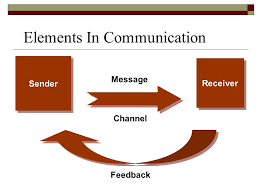How
denotative versus connotative meaning treated as a barriers of Communication?
A
receiver and sender may attach different meanings to the words used in a
message. The denotative meaning is the literal or dictionary meaning. The
connotative meaning includes associations and feelings evoked by the word. The
connotative meaning can also be the result of slang or sarcasm. Senders should
analyze their receivers as thoroughly as possible. In addition, sender should
be careful to avoid words with negative connotations.
How denotative versus connotative meaning treated as a barriers of Communication?
To
communicate effectively you must be aware of the connotative meaning of your
words choose words that have fewer connotations ( to reduce the chance of
offending your audience)


